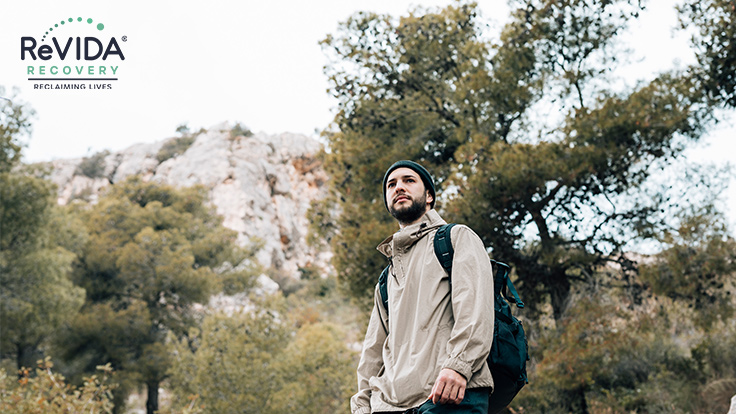
Sean had been partier since his college years. He felt he had to be at every party just to feel alive. At first, it just started with alcohol. He would drink until he couldn’t remember anything anymore. It helped hide the emotional stress and pain that he was going through. He always felt like life was moving too quickly to process anything, so he had to live in the fast lane just to get by. And partying every weekend sounded like the best way to do that.
Now that he was out of college, the habit became a ritual. How else was he supposed to deal with stress at work? Drinking was the only way he knew how to relax. That was until a guy at the bar offered him fentanyl. The guy said it would solve his problems, and Sean said, “Why not?” The increased effects of alcohol and fentanyl only encouraged him until one day, he woke up in a hospital room. The attending nurse informed him that he had an overdose caused by fentanyl and alcohol. It forced him to reevaluate his life.
Many people experience non-fatal overdoses. In 2021, 27,493 people received either outpatient or inpatient treatment for a non-fatal overdose in Tennessee. Getting help with fentanyl and alcohol use is often a pressing matter. Many people change their minds about seeking treatment before they even get to the point of attending their first appointment. This is why ReVIDA® Recovery offers same-day appointments – to limit the chance of someone changing their mind. Treating fentanyl and alcohol use disorders together is vital to ensuring recovery. But what is the harm in using fentanyl and alcohol? Can it be that dangerous?
Table of Contents
Mixing Fentanyl and Alcohol
Fentanyl and alcohol are both depressants, which are sometimes referred to as “downers.” They can create feelings of euphoria and relaxation but also cause loss of motor coordination, low blood pressure, slow breathing, and reduced reaction time. Mixing them can result in overdose, death, or severe damage to the brain, heart, and other vital organs. Mixing them could mean taking them simultaneously or within hours of each other.
Several factors can increase someone’s risk of mixing fentanyl and alcohol. Males are more likely than females to use both together. Younger people and those with lower household incomes might combine fentanyl and alcohol. Binge drinking is also a reason people might use fentanyl and alcohol together.
It is also possible to accidentally mix fentanyl and alcohol if you are taking other substances with alcohol. Exposure to fentanyl can happen due to people mixing fentanyl with other substances, such as heroin. This is done because fentanyl is 50-100 times stronger than heroin, which makes it easy for dealers to use it to increase their supply and the strength of their product. It is also cheaper, which makes it easy to decrease the costs of heroin. When you consume heroin and alcohol together, there is a chance that you could be consuming fentanyl without knowing about it.

Side Effects of Mixing Fentanyl and Alcohol
Mixing fentanyl and alcohol can have several short-term side effects. These can include:
- Dizziness
- Stumbling
- Memory loss
- Low blood pressure
- Coma
- Unconsciousness
Several long-term increased risks can occur if someone uses fentanyl and alcohol over time. These can include:
- Cancer
- Stroke
- High blood pressure
- Hepatitis
- Heart failure
- Ulcers
Dangers of Mixing Alcohol and Fentanyl
Consuming too much alcohol or fentanyl on their own can result in an overdose. However, if you consume them together, the risk of overdose is increased. While overdose is the most significant danger when combining alcohol and fentanyl, other risks exist. Alcohol and fentanyl can also result in injuries to yourself or others. Some people might become more prone to participating in violence or unsafe sexual behavior.
Fentanyl and Alcohol Overdose
An overdose is a medical emergency that requires 911 to be called immediately. If someone is experiencing any symptoms of an overdose, medical attention is needed. Even if you have combined fentanyl and alcohol in the past, an overdose is still a risk each time you combine the two substances. Alcohol and fentanyl overdose have similar symptoms, and the risk increases when combined. Symptoms can include:
- Limp body
- Vomiting
- Gurgling noises
- Unable to speak
- Slow or stopped heartbeat
- Slow or stopped breathing
- Cannot be awakened
- Blue or purple fingernails or lips
- Pale or clammy skin
When an overdose is left untreated, it can lead to death. Narcan® (naloxone) is used to reverse the effects of a fentanyl overdose. In Tennessee, anyone can buy Narcan® (naloxone) and administer it to a loved one experiencing an overdose. If you or a loved one uses fentanyl, it’s a good idea to keep Narcan® (naloxone) on standby.
Ultimately, the best way to prevent an overdose is to seek recovery from fentanyl and alcohol use. This experience is full of emotions, but it is the best way to avoid experiencing an overdose. Recovery can help you reclaim your life.

Get Treatment for Fentanyl and Alcohol Use Disorder!
Treatment for fentanyl and alcohol use disorder might seem like a terrifying experience. It can come with uncomfortable withdrawal symptoms but can also be a rewarding road to a new life. If you are ready to reclaim your life, ReVIDA® Recovery will help you through this process. We provide personalized assistance with court letters, housing services, CPS, custodial proceedings, and finding a job in several locations throughout Tennessee and Virginia, including Johnson City, TN and Knoxville, TN. For more information about our treatment programs for fentanyl and alcohol use, call us today at 423-631-0432.
FAQs
Can you drink alcohol while taking fentanyl anesthesia?
You should not drink alcohol while taking fentanyl anesthesia. Combining alcohol and fentanyl can lead to several side effects, including memory loss, unconsciousness, coma, low blood pressure, and overdose. An overdose is a medical emergency and requires immediate care. Signs of an overdose include blue skin, slow breathing, slow heart rate, vomiting, and a limp body.
What to avoid when taking fentanyl?
There are several substances to avoid when taking fentanyl. These include medications for mental health concerns, nausea, pain, muscle relaxants, sleeping medications, and sedatives. This also includes illicit substances which can create life-threatening severe health concerns, coma, or sedation. Alcohol is also encouraged to be avoided to reduce the risks of overdose.
Is Mixing Fentanyl and Alcohol Safe?
Mixing fentanyl and alcohol is never safe. Even if you have done it before, all it takes is one time to experience an overdose. Signs of an overdose can include slow breathing and heart rate, vomiting, unconsciousness, blue skin, and a limp body. To reverse the effects of an opioid overdose, such as fentanyl, Narcan® (naloxone) can be used. In Tennessee, you can get it over the counter. If you or a loved one use fentanyl, keeping Narcan® (naloxone) on hand can be helpful.









